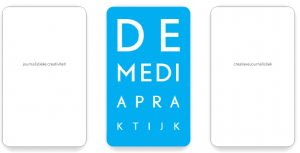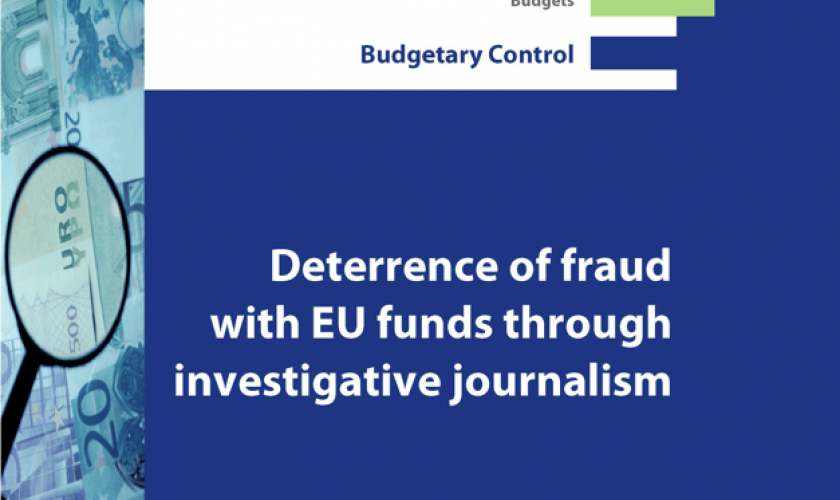‘Journalists should add value.’ I have been hearing that a lot lately. Jeff Jarvis said it on July 3rd, at the third World Journalism Education Congress (WJEC3) in Mechelen, Belgium. ‘Add value.’ Pity. Just adding value could even become fatal, under the present circumstances.
MECHELEN - ‘Journalists should add value.’ I have been hearing that a lot lately. Jeff Jarvis said it on July 3rd, at the third World Journalism Education Congress (WJEC3) in Mechelen, Belgium. ‘Add value.’ Pity. Just adding value could even become fatal, under the present circumstances.
-- by Karel van den Berg
Journalism is in trouble. Our monopoly on the trinity technology-news-media has been shattered rapidly. The day before yesterday the amateur could neither afford nor operate professional equipment. Only yesterday news was news when journalists said so. And today our audiences are no longer only in front of the stage, but also on it. Familiar business models are vanishing. New ones fail to appear.
Gurus
And people in need grasp every straw that passes by. It makes journalists susceptible for the dealers in hope, on the growth market with prophets exploiting their charisma. A.k.a.: new media gurus.
You can recognize the guru by his marketing model: ‘You are doing it all wrong, go on like this and you will come to grief! But you’re lucky – you found me! I know the way, the truth and the future! So stop what you’re doing and do as I tell you to!’ The guru sells uniform solutions to the pluralistic media. Preferably with catchy slogans like Jeff Jarvis’ Do what you do best, link to the rest! In short: add value. But that doesn’t rhyme.
I’m exaggerating. Media gurus don’t choose their status themselves. Their disciples give it to them. At the WJEC3 I saw academics who are schooling my future colleagues as independent thinkers pose as groupies for photos with Jarvis.
Okay, let me try to be a bit subtler. I cherish my journalistic scepticism about gurus and panaceas. I sell journalistic creativity. Creativity in short is: breaking thinking patterns. Gurus sell thinking patterns. That’s why.
And yes, Jarvis’ question What would Google do? is interesting. But even more interesting is the next question to be asked: should journalism copy that?
Adding value, as in Jarvis’ journalism is no longer about creating content, journalism is a service – why is it so risky? Well, logically you can only add value to what already exists. Which leads us in the wrong direction.
Gurus have already been caught walking in the wrong direction quite a number of times. They convinced our employers that free is the new gold mine, without providing a business model to go with it, leaving us holding the baby. The seeming innovation made newsrooms cut their budgets well before the economic crisis. It resulted in fewer journalists producing more churnalism, as Nick Davies revealed in Flat Earth News. In guruese: adding value by cutting press releases to size and distributing them unquestioned.
I’ll spare you my disputes with modern media missionaries. Well, okay, one perhaps. Last fall I was quarrelling with a social media trainer at an esteemed Dutch university. The man taught ‘conservative’ regional newspaper journalists to retweet bits of news as soon as they appeared on their timelines. ‘Or else you’ll miss the boat, online. If a tweet turns out not to have been accurate, that will be rectified on the web.’
No, he couldn’t define journalism. ‘I’m sure you know a fine definition. But it doesn’t matter. It’s a proven fact that businesses that don’t keep up with changing markets won’t survive.’ His statement betrayed about every trendy fallacy about my trade: journalism equals news and media. And news apparently is content that’s brief, quick, nearby and popular. Detrimental misapprehensions.
The academic responded to my plea like all new media devotees do, pityingly considering journalism a living excavation, populated by dinosaurs that are unaware of their extinction. Or, as the communication student snapped at me the other day: ‘Don’t you think journalists can still determine what I should or should not know.’ Huh? When did we do that? In the Soviet Union perhaps, before glasnost opened up Pravda’s newsroom windows. But this guy was born after that, outside Russia.
Amateur football
Sure, journalism needs to deal with a brand new, supersonic free market of opinions and allegations. But moving in the wrong direction on a changing market rather accelerates the downfall.
How about this for an explanation of the downward pressure on my trade: in ‘normal’ sports, first there were the amateurs, then came the professionals. Soccer kids dream of turning their hobby into a profession.
Spreading news has turned from a professional sport into a popular sport. This reversed history leads to confusion, to the pressure to turn our profession into a hobby. As in: everybody is a journalist nowadays. Or: there no longer are journalists, there are only acts of journalism. That kind of humbug. True of not, retweet – anyone can do it. As if a microwave turns anyone into a cook. As if journalists add value by circulating recycled information.
If you think about it, it’s a funny advice to descend from the Premier League to amateur level and to try and resemble everybody else on the market. Or to choose a different sport as a solution – save soccer, play tennis!
In fact, that is Jeff Jarvis’ advice: ‘stop telling stories, offer service to your community’, with platforms where even authorities can drop their information. Please, go ahead. But it’s another branch of sport. Journalism that merely facilitates, that no longer critically verifies, that loses its independent reliability – to mention a few distinctive characteristics – simply isn’t journalism anymore. Journalism still is what professional journalists do with news and media. Or what they should do. Discover and reveal news, preferably, contextualize and interpret, question, unmask true intentions of people in power, distinguish facts and opinions. Some other fundamental values.
Not a day to soon to turn the pressure upwards again, now that there are so many (online) playgrounds where amateurs dream of becoming a professional in journalism. About time to scout the talents for our professional stadiums: the news papers, the magazines, the programmes, the blogs, the websites, the apps, with the millions of fans on their grandstands.
Couch potato
There still is a lot worth fighting for. More viewers watch the Dutch investigative journalism programme Brandpunt every Sunday night on their quaint television sets, than you’ll find soccer fans in our national pro-leagues during a whole weekend. I occasionally calculate and round up the number of people following Brandpunt on Twitter. Usually a community that’s small enough to host in the canteen of my local soccer club.
New media gurus like to sketch a picture of everybody taking part and the minority of laggards following soon. Please come and have a peek through the windows in my street at night and behold the couch potato. At the end of a working day he doesn’t feel like actively taking part in the digital debate at all, digging through twenty comments on a blog post before adding his own value. He just wants to zap through digestible chunks of information or entertainment. People still watch more and more television every year.
Do we neglect my neighbour? Do we give up on him? Should journalism leave the mission to inform as many people as we can as well as we can, on what is of interest for voters, consumers, taxpayers, world citizens? Should we stop trying to make important issues interesting and relevant to all those people like my neighbour? The most troubling of all is that many gurus and journalistic employers measure success by numbers only, thus confusing the popular with the important.
Still, Jeff Jarvis’ question What would Google do? is justified. Yet, not just to copy that success. On the contrary, rather to not do that. Google already delivers the service of linking to the rest. Opening up available information, journalists won’t add much value to that. We should search for the unknown facts, also on the web. Create new information. That’s the craft we should pick up again. Not starting with new technologies and media, but with journalistic value creation – even with new technology and media.
A substantial part of that value is created by the brands we build. Journalism should become a top brand again. Top brands never aim at similarity. Successful brands strive for distinction of everything that’s out there. So let’s create value, rather than adding it. It’s a much more than semantics, it’s a profound decision. That one little word opens up a fundamentally different world, another mentality, a completely different attitude. And a much higher self-respect, too.
Isn’t it another panacea? No, it’s not. Does it make things easier? No, it doesn’t. Still I expect that value creation will give us a much bigger chance on saving my valuable trade as a factor in the free democracy and open society I live in.
So let’s create top brand value with distinctive quality and originality. Let’s raise investigative and professional journalism to the status of pleonasms. Or, in my poor guruese: don’t add value, create it. No rhyme, I know. But hey, I’m no guru.
Author: Karel van den Berg






